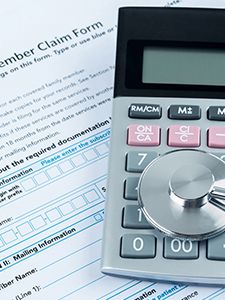POST TAGS
Blog posted On October 15, 2019

In recent years, student loan debt has been one of the biggest obstacles to saving for the down payment on a home, especially for Millennials and younger first-time home buyers. A recent Zillow survey of 13,000 households nationwide reveals that another type of debt may be hurting home buyers and renters of all ages, even more than student loan debt.
38% of home buyers and 39% of renters reported medical debt as the main reason for mortgage or rental denial, while only 24% of home buyers and 28% of renters reported student loan debt as the reason. Zillow’s Director of Economic Research, Skylar Olsen, explained the debt burden, “Health care has never been more expensive. Getting a college degree, a path more likely to lead to economic success for those able to get through it, has never been more expensive. U.S. housing values and rents have never been more expensive. While incomes, both at the high and low end, are growing, the pace hasn't kept up with those crucial life expenses.”
Debt of any kind hurts home buyers in a number of ways. When you carry student loan debt, medical debt, or other debt it raises their debt-to-income ratio, hurting your chances of qualifying for a mortgage. If you’re actively paying down debt, those required payments limit the amount of income you are able to set aside to save for your down payment and closing costs. If you miss any payments or are stretching your credit limit with credit card debt, your debt can hurt your credit score, making it harder to qualify for a lower interest rate. Your debt will not prevent you from being able to buy a home, but you may have to look into different types of down payment assistance and mortgage loans.
If you feel like you’re burdened with medical debt, student loan debt, or any kind of debt, the most important thing to do is to continue to pay it down. Make the minimum payments and try to avoid late or missing payments. Depending on the severity of your debt, it may be worth meeting with a credit counselor who can help you set up an achievable repayment plan and manage your spending. There are also services you can pay that will negotiate with your creditors and help you either consolidate your debt or lower your required payments.
If you think your debt is stopping you from making a home purchase, you may want to talk to a loan officer. There are numerous pathways to buying a home and when you do make that investment, you’re going to start building equity and setting yourself up for a better financial future.